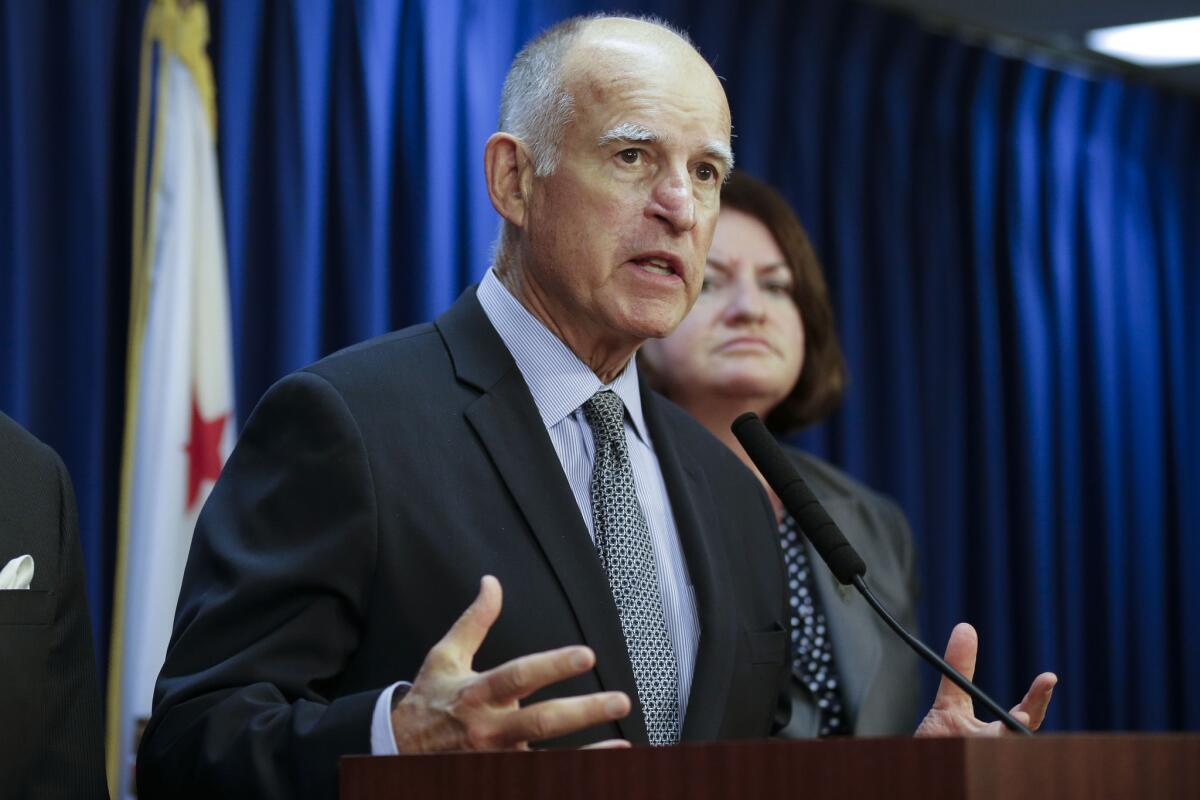Gov. Brown allows advisory ballot measure on Citizens United decision

An advisory measure asking Congress to amend the U.S. Constitution and overturn the Citizens United court decision will go on the November ballot in California without Gov. Jerry Brown’s signature on the enabling legislation, Brown announced Wednesday.
The court decision lifting campaign contribution limits for corporations was “wrongly decided and grossly underestimated the corrupting influence of unchecked money on our democratic institutions,” Brown wrote in a message to the Legislature agreeing with their concern.
“But we should not make it a habit to clutter our ballots with nonbinding measures as citizens rightfully assume that their votes are meant to have legal effect,” Brown added, noting the vote on the ballot measure “has no legal effect whatsoever.”
He noted that the Legislature itself had already approved a resolution asking Congress to convene a constitutional convention to overturn the U.S. Supreme Court decision.
“Nevertheless, given the Legislature’s commitment on this issue, even to the point of calling for an unprecedented Article V constitutional convention, I am willing to allow this question to be placed before the voters,” Brown wrote. “By allowing SB 1272 to become law without my signature, it is my intention to signal that I am not inclined to repeat this practice of seeking advisory opinions from the voters.”
The governor said he was announcing his action on the bill Wednesday so that the advisory question, Proposition 49, can be included in the principal ballot pamphlet, “avoiding the significant costs of a supplemental pamphlet.”
Even if California voters agree to ask Congress to amend the constitution, it is unlikely Congress would be able to muster the two-thirds vote in each house to take action, according to Larry Gerston, a political science professor at San Jose State University.
“Given the polarization on nonpolitical issues, there will be nowhere (near) two-thirds majorities in either chamber,” Gerston said.
State Sen. Ted Lieu (D-Torrance), the author of SB 1272, praised the governor for allowing the voters to act on the advisory measure.
“My measure will give voice to California’s electorate about the influence of money in politics and drive a national debate on campaign-finance reform,” Lieu said.
Follow @mcgreevy99 for news from Sacramento.
More to Read
Start your day right
Sign up for Essential California for news, features and recommendations from the L.A. Times and beyond in your inbox six days a week.
You may occasionally receive promotional content from the Los Angeles Times.






